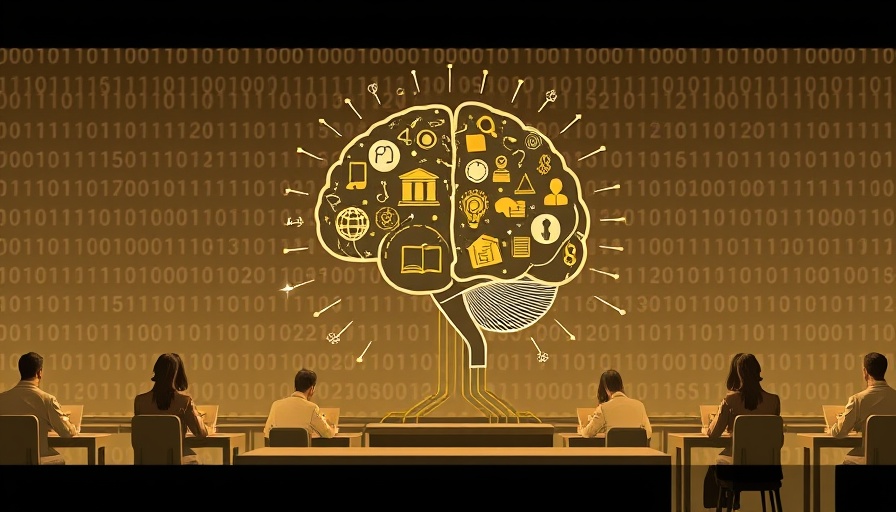
University of Michigan Introduces Revolutionary AI Teaching Assistant
The University of Michigan has taken a bold step into the classroom of the future by launching an innovative Agentic AI Virtual Teaching Assistant, a comprehensive tool designed to enhance educational experiences. This development marks a significant shift in pedagogy, aiming to make learning more accessible and tailored for all students.
Empowering Teachers and Students Alike
The Agentic AI is not merely a tool but a resource that empowers both educators and learners. With its capability to respond to student inquiries in real-time, it alleviates some pressure from teachers, allowing them to focus on critical teaching moments rather than repetitive administrative tasks. This technology can handle a multitude of student questions, offering personalized responses that cater to the unique learning pace and style of each individual.
The Intersection of AI and Education: A Practical Guide
As educators face increasing challenges in the modern classroom—from addressing diverse learning needs to managing large groups—the Agentic AI offers practical insights into using artificial intelligence effectively. It provides automatic assessments and feedback, relieving burdensome grading duties and facilitating more interactive student engagement. Imagine the possibilities: teachers can now devote more time to crafting lessons that inspire creativity and critical thinking.
Real-World Applications and Examples
This AI assistant is not just theoretical; it is designed with real-world applications in mind. Schools across the nation are already exploring how AI can help bridge gaps in learning and foster STEM education. Institutions that have integrated AI technologies have reported improved student engagement and academic performance as students receive immediate assistance and learning tailored to their needs.
Potential Challenges and Counterarguments
However, as with any new technology, concerns exist. Critics argue that reliance on AI could diminish the essential human element in teaching, which is key to fostering relationships and empathy in educational settings. There's also apprehension about data privacy and how student information is handled. Addressing these challenges through careful policy development and ethical standards will be crucial for the success of such technologies.
Looking Ahead: Future Trends in Educational Technology
As we glance toward the future, the role of AI in education is poised to grow. Experts predict that as AI becomes more sophisticated, its integration into classrooms will evolve beyond teaching assistance. Future applications may include fully interactive virtual classrooms and adaptive learning environments that recognize individual strengths and weaknesses, assuring a more personalized learning journey for every student.
Actionable Steps for Educators
For educators and administrators looking to implement similar technologies, consider starting with pilot programs that incorporate AI tools. Engaging in training sessions can ensure that both faculty and students are prepared to embrace these new methods. Feedback from these initial experiences will provide insight into improving future iterations of AI teaching tools.
As the landscape of education continues to evolve, the integration of AI represents a paradigm shift. Understanding its implications today will prepare schools for a brighter, more inclusive educational tomorrow.
Educators, administrators, and parents should explore how technologies like the Agentic AI can enhance learning experiences. Engage with community discussions on educational technology to share insights and strategies on this important development.
 Add Row
Add Row  Add
Add 




Write A Comment